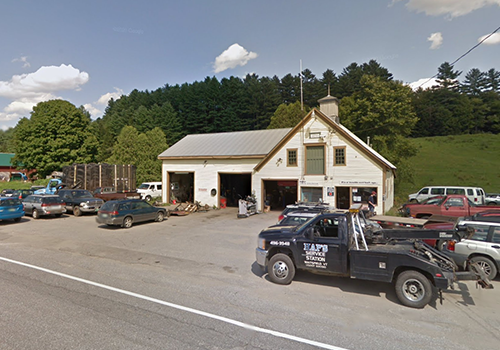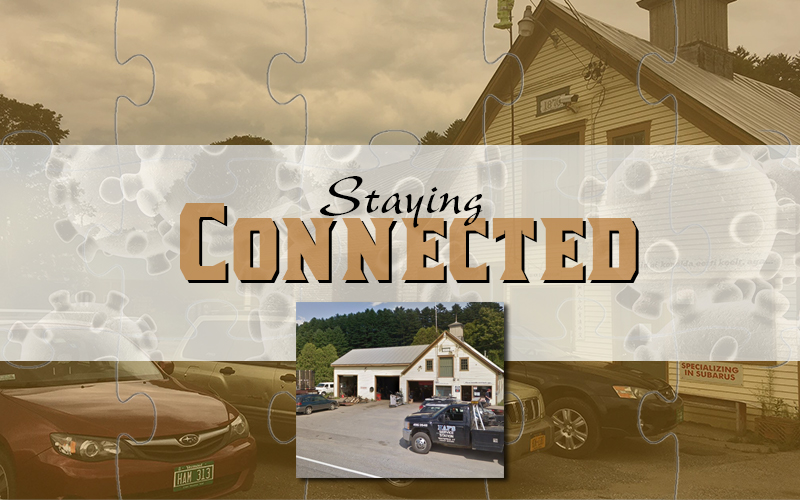Hap’s Service Station in Waitsfield is still going strong in the face of the coronavirus pandemic. “Right now it’s not as bad as I thought it would be. We haven’t had to close,” said Paige Gaylord, Hap’s manager.
While the repair shop has reduced its hours, all workers are staying on and keeping busy. “It’s tire-changing season, so we’ve got a lot to do,” said Gaylord.

At Hap’s, almost every part of the customer interaction process has changed as workers strive to follow social distancing recommendations while dealing with a regular influx of customers. The waiting room is off limits. Customers must either drop of their cars or wait outside. Car keys are exchanged via drop box. “We are sanitizing and wearing gloves,” said Gaylord.
Still, adapting to running a business during a pandemic has posed several challenges, including treading the fine line between pleasing customers and interrogating them about their health and sanitation practices. For instance, once when a customer was dropping of a car key, Gaylord heard a cough. “You don’t know how to react to that! It’s awkward to be like, ‘hey, heard you cough earlier. Just wondering, do you do that often?’ Of course I don’t say it like that, but I really do have to think about having these conversations in the most politically correct way,” said Gaylord.
At the start of the pandemic, Gaylord was worried about the influx of out-of-staters that were coming up to Vermont and, subsequently, to the service station, in droves. “It makes sense that they come up here instead of staying in their more city and suburban-like homes. But you worry because you don’t know if they've been following protocols,” said Gaylord.
FEAR SUBSIDED
However, this fear quickly subsided as she realized that non-Vermont residents are just as eager as Hap’s workers to follow sanitation and social distancing practices. “They really do understand,” said Gaylord.
Another time, Gaylord had a customer who was allergic to Clorox wipes, which Hap’s workers had been using to clean interior car surfaces and keys. “After that, I got nervous about going into anyone’s car with Clorox wipes. I thought, do we need to suit up in a full hazmat suits? It’s one of those things you think about,” said Gaylord.
Hap’s is also adjusting to a decreased demand for towing. As less people are out on the road due to social distancing, the shop has received far fewer calls for roadside assistance. “We only had two emergency calls in the last month. What we do in those situation is make sure the person has a ride so we can maintain social distance,” said Gaylord.
All in all, Gaylord is pleased with how Hap’s is handling the crisis. “As an essential service, its our job to figure out how to keep working while protecting customers,” said Gaylord. “I’m happy with how we’re handling it. I think we’re doing well with what we have.”







